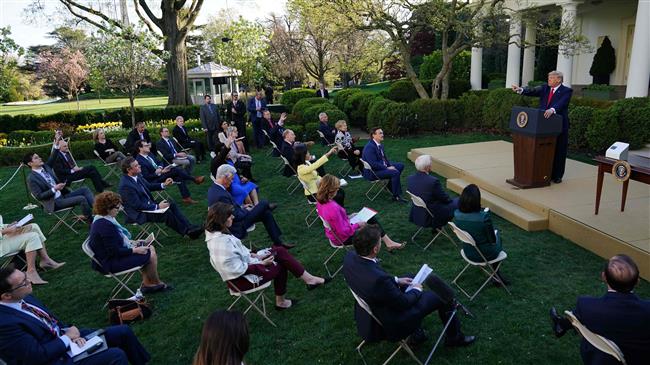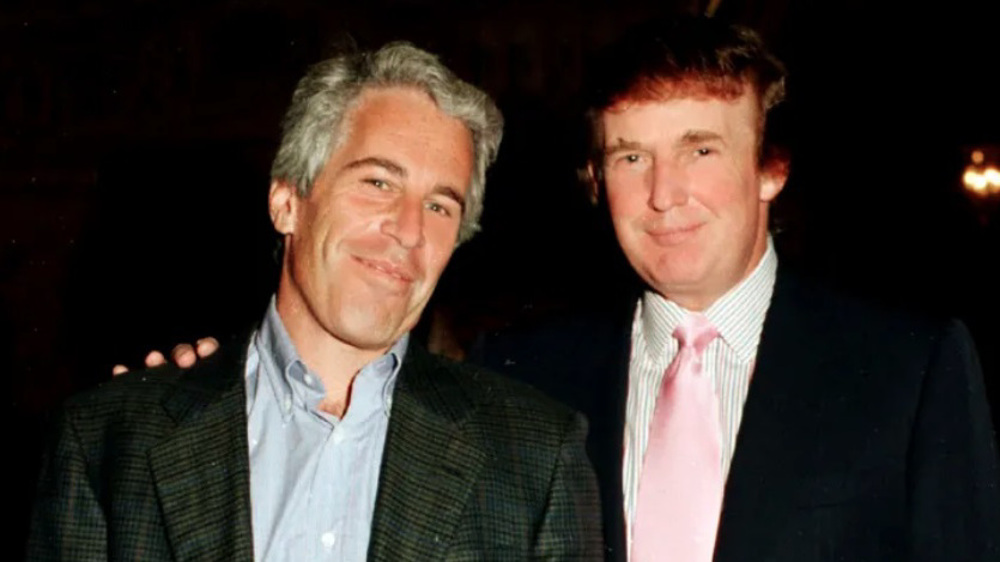Journalists skipping Trump ‘increasingly less newsworthy’ briefings over covid-19 fears
White House veteran journalists are skipping US President Donald Trump’s daily press conferences on the spread of the coronavirus in the country over fears of contracting the disease and the growing need for social distancing.
Empty seats at Trump’s press briefings were, instead, giving the right wing media the chance to get a “prominent stage,” reported The Washington Post Wednesday.
The Washington Post, New York Times and CNBC have decided to keep their distance at a time “many consider the president’s evening news conferences to have become increasingly less newsworthy.”
“Nowadays, it seems they make little news,” said Times Executive Editor Dean Baquetd. “We, of course, reserve the right to show them live [via Web streaming] if we believe they will actually make news. But that hasn’t happened in quite some time.”
Two White House correspondents have been suspected of having contracted covid-19 as the virus rapidly spreads across the country.
The Trump administration has been criticized for the president’s near-daily briefings, filled with disinformation that could cause confusion in the public.
US immigrants on hunger strike
The pandemic is mostly harming the poor and the vulnerable in the society, namely thousands of nonviolent detainees at immigrant detention centers.
"There are at least four confirmed cases of immigrants in custody who have coronavirus, and five ICE facility employees who had tested positive -- that was as of yesterday," said Texas Democratic Representative Joaquin Castro the chairman of the Congressional Hispanic Caucus (CHC), in a press call Tuesday. "Immigrants are staging peaceful protests and hunger strikes to be released on concern for their life and subpar detention conditions.”
Hundreds of prisoners in state and federal prisons have tested positive for covid-19, and at least one inmate has died.
While some states are trying to release some inmates, ICE is being pressured to make the move to stop the spread of the virus.
"When making such decisions, ICE officers weigh a variety of factors, including the person’s criminal record, immigration history, ties to the community, risk of flight, and whether he or she poses a potential threat to public safety,” Danielle Bennett, a spokeswoman for ICE, told The Hill in an email. “ICE also routinely makes custody re-determinations of those in detention, based on individual circumstances, and may release detainees onto alternatives to detention (ATD) and other monitoring programs, for a variety of reasons.”
Iran repels massive cyberattack on communications infrastructure
Eslami: Iran’s nuclear industry advances despite sanctions, strikes
VIDEO | Martyr Abu Mahdi warship
Iran’s engineering feat beneath Persian Gulf for gas supply
Israeli military confirms soldier’s death in apparent suicide case
UN chief slams Israel for blocking utilities to UNRWA in Gaza
Israel launches airstrikes, artillery fire across Gaza on first day of 2026
VIDEO | Press TV's news headlines










 This makes it easy to access the Press TV website
This makes it easy to access the Press TV website